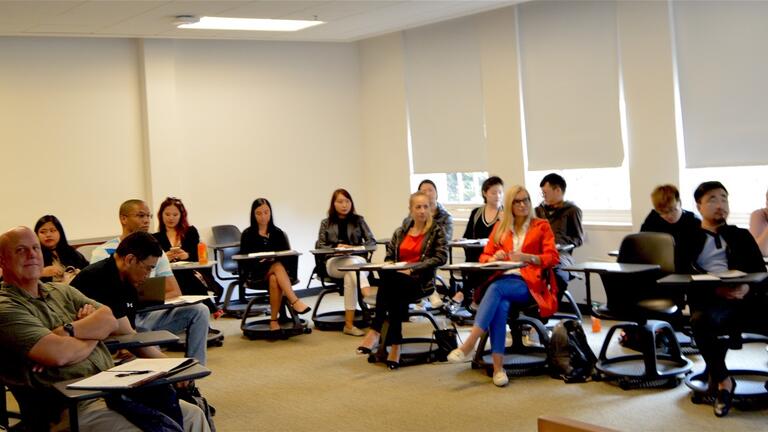The New Cohort of MAPS: Diverse Backgrounds and Skills
The M.A. in Asia Pacific Studies program (MAPS), now in its 23rd year of operation at USF, welcomed one of the largest incoming cohorts in its history this fall semester. Twenty-nine students from various domestic and international locations, and two undergraduate students in the “4+1” program, began the program’s two gateway seminars in late August. MAPS cohorts are always diverse but this one was unique in bringing together individuals who have lived, studied, and worked abroad in China, Korea, and other parts of the Asia Pacific; students from China, the Marshall Islands, Slovakia, Thailand, and Vietnam; as well as those with roots in Mongolia and Belarus. Our domestic students likewise come from a cross-section of the country, with their home states California, Arizona, Florida, Indiana, and Maryland all represented. We have individuals with expertise in public policy, teaching English in South Korea, military service (including combat veterans), and those who currently work at non-profits, schools, and various companies.
To accommodate this large cohort, we received support from Associate Dean Eileen Fung to open additional sections of both first-semester seminars: one on Research Methods and the other on Histories and Modernities in the Asia Pacific. For the first seminar, Prof. Genevieve Leung and Dr. Cynthia Schultes (both of whom have been teaching in MAPS for several years) collaborated in their usual dynamic and engaging way. For the second seminar, Dr. Leslie A. Woodhouse (who serves as assistant managing editor of the Center’s online journal Asia Pacific Perspectives) has joined Adjunct Professor Jonathan Tang to create two smaller-size classes.
The program benefits tremendously from this wide-range of interests, expertise, and cultural backgrounds. Not only are a variety of perspectives needed when exploring academic topics, we actively promote discourse and debate that is respectful, informed, and balanced between opinion and supporting evidence. At a moment in history when politics has divided many individuals into camps of one party or the other, we feel it is important to be inclusive of diverse opinions yet rigorous in how they are assessed in academic contexts. This type of training is essential for professional collaboration and teamwork as our students move into their careers. To continue our emphasis on fostering student growth and professional development, we will hold a networking mixer with the Center’s Executive Board on January 26, 2017 and our Annual Career and Networking Forum on February 23.
